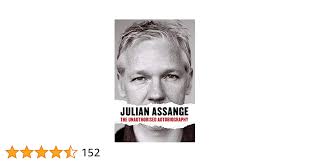Understanding the Impact of Julian Assange

Introduction
Julian Assange, the founder of WikiLeaks, has become a symbol of the struggles between governmental secrecy and public transparency. His ongoing legal battles and the implications of his work have sparked global debates surrounding freedom of the press, whistleblowing, and human rights. As discussions around freedom of expression intensify, Assange’s predicament raises critical questions about state power and the accountability of institutions.
The Rise of WikiLeaks
WikiLeaks was founded in 2006 by Assange as a platform for whistleblowers to expose governmental and corporate misconduct. The organisation gained international attention in 2010 when it released hundreds of thousands of classified U.S. military and diplomatic documents. This significant leak brought light to various issues, including the Iraq War and government surveillance, highlighting the need for transparency and the crucial role of investigative journalism in a democratic society.
Legal Troubles and Extradition
Assange’s legal troubles began in Sweden, where he faced allegations of sexual misconduct, which he has consistently denied. In 2012, facing extradition to Sweden, he sought asylum in the Ecuadorian embassy in London, where he remained for nearly seven years. In April 2019, Ecuador withdrew his asylum, leading to his arrest by British authorities. Currently, Assange is fighting extradition to the United States, where he faces multiple charges, including espionage. The situation has drawn significant criticism from numerous human rights organisations, who argue that extraditing him poses a threat to journalists globally.
International Reactions and Support
Assange’s case has inspired a global movement advocating for his release. Prominent figures, including political leaders and celebrities, have voiced their support, emphasising the importance of safeguarding press freedom. In recent months, protests demanding justice for Assange have taken place in various major cities, illuminating the widespread support he garners as a symbol of resistance against governmental overreach.
Conclusion
The Julian Assange case is emblematic of the ongoing struggles surrounding freedom of the press and the protection of whistleblowers. As legal proceedings continue, the outcome will likely set important precedents for journalists and publishers globally. With an increasing number of nations considering laws that protect press freedom, Assange’s situation serves as a crucial reminder of the potential consequences faced by those who dare to expose uncomfortable truths. The future of journalism, human rights, and governmental transparency hangs in the balance as discussions surrounding his extradition and the implications of his work unfold.









